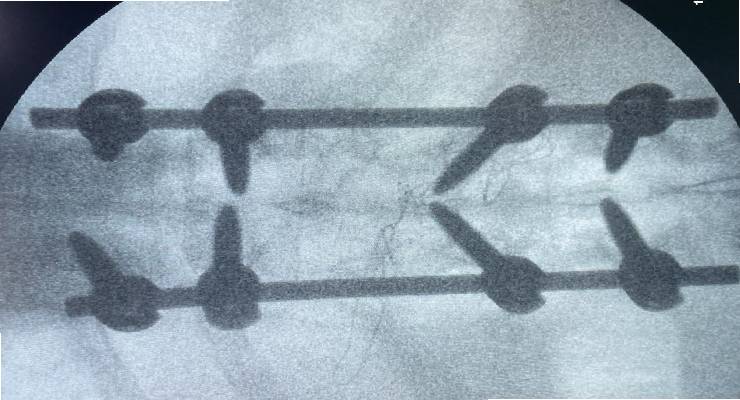
Spinal infections, also known as vertebral osteomyelitis or discitis, occur when bacteria, fungi, or other pathogens infect the bones (vertebrae) or discs of the spine. These infections can be serious and may lead to complications such as spinal instability, neurological deficits, and systemic illness if not promptly diagnosed and treated.
For expert care, consider consulting Dr. Phani Kiran S, specialist in Spinal Infection Surgery at Medspine in Chennai, with more than 10 years of experience.
This type of infection affects the vertebral bones, leading to inflammation and destruction of bone tissue. It is usually caused by bacteria but can also be fungal or, rarely, viral. Vertebral osteomyelitis can occur in any part of the spine and may involve one or multiple vertebrae.
Discitis is an infection of the intervertebral discs, the soft tissue structures that act as shock absorbers between the vertebrae. Bacteria are the most common cause of discitis, but fungal or viral infections can also occur.
An epidural abscess is a collection of pus that forms in the epidural space, the area between the spinal cord and the spinal canal. It can result from the spread of infection from nearby structures, such as vertebrae or discs, or from distant sites via the bloodstream.
Infections can also affect the spinal cord itself, leading to conditions such as myelitis or meningitis. These infections can cause inflammation of the spinal cord or its protective membranes, resulting in neurological symptoms such as weakness, numbness, or paralysis.
Infections can occur as complications of spinal surgery, such as spinal fusion or decompression procedures. Postoperative infections may involve any part of the spine and can be caused by bacteria, fungi, or other microorganisms.
Tuberculous spondylitis is a form of vertebral osteomyelitis caused by Mycobacterium tuberculosis, the bacterium that causes tuberculosis. It typically affects the thoracic and lumbar spine and can lead to vertebral collapse and spinal deformities if left untreated.
It is a surgical intervention specifically for treating disc herniations in the lower back (lumbar region). Surgeons use an endoscope to remove portions of the herniated disc that are causing pain and other symptoms by exerting pressure on nerve roots.
It is similar in purpose to endoscopic lumbar discectomy, focuses on the treatment of herniated discs. However, it involves specialized microsurgical techniques and instruments in addition to the endoscope.
Endoscopic Cervical Discectomy targets disc herniations in the neck (cervical region). Surgeons remove the herniated parts of a cervical disc that are compressing the spinal cord or nerve roots.
The Ortho Clinic: Monday, Wednesday, Friday, Saturday.
Ojas Health: Tuesday, Thursday
© Copyright 2024 MedSpine. All Rights Reserved. Build with 🤍 by Digital GYB
WhatsApp us